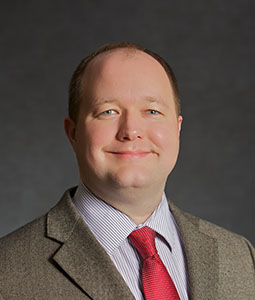Amendment I of the U.S. Constitution says, in part, “Congress shall make no law… abridging the freedom of speech, or of the press. …Short, to the point—but anything but simple and straightforward.
It is the job of Associate Professor
Jason Martin, chair of the college's
journalism program, to make sense of this thorny bedrock of democracy for his students. In this interview, he discussed how free speech inflects society and the work of journalists.
 Jason Martin (Associate Professor, Program Chair - Journalism)
Jason Martin (Associate Professor, Program Chair - Journalism)
How do you discuss free speech with students?
I always start by telling all students, whether or not they are going to go into a news career, that what makes the First Amendment the strongest free speech protection in the world is that it's the same rights for all people.
At the same time, it's not an absolute right. It doesn't give you the right not to be criticized, or [protect you from] a private employer or another private citizen taking action in response to your speech or your sharing of that speech. These exceptions are generally agreed upon—things like perjury, blackmail and obscenity.
How does it apply in journalism?
We don't want the government saying who is a journalist and determining who gets more or fewer free speech rights. If you gather information, interview people and publish on the internet, you have the same First Amendment protection as a journalist at the Chicago Tribune. That means you also have the same responsibilities. So that makes it possible for citizen journalists to capture events and share with people things that are newsworthy and in the public interest.
DePaul has been in the crosshairs of partisan organizations for its refusal to allow certain speakers on campus. Is the university violating the Constitution?
DePaul could enact a lot of policies that could be really unpopular about speech, but wouldn't necessarily be unconstitutional. That said, it's a very public mission to educate people. In a lot of ways, DePaul takes a lot of approaches that mirror those at public universities.
Now what has happened lately is sometimes you get people who are using their rights to speech not only to put out unpopular ideas or opinions, but sometimes to target individuals or groups directly or indirectly. Then you get into how administrators are going to respond—balancing what sometimes moves out of the realm of purely speech and is more about behavior and classroom conduct or events that are going to happen on campus. You're talking about what and how do we want to run a university that welcomes a lot of ideas but also is really respectful of all the people in that community.
I think if people are committed to genuinely expressing viewpoints and challenging and exploring ideas, they usually work out really well. When controversial speakers are motivated by reasons other than expressing their viewpoints—for example, to gain publicity or inflame people—the decisions get more complicated. If the student groups want to bring somebody controversial, we should follow the procedures we laid out, but we also should take a really proactive stance to counterprogram and limit [the speaker's audience] to the campus community.
What about the hateful speech and conduct on social media platforms that many people would like to eliminate?
That's a little bit different from a free speech legal environment. It's much more about these private entities having reasonable policies and enforcement in place because the body of First Amendment legal literature makes government regulation problematic. It would be nice if these companies would realize that they are contributing to a really twisted picture of the world, and threatening to distort how people think about important concepts like free speech.
Originally published in
Conversations (Spring 2020).